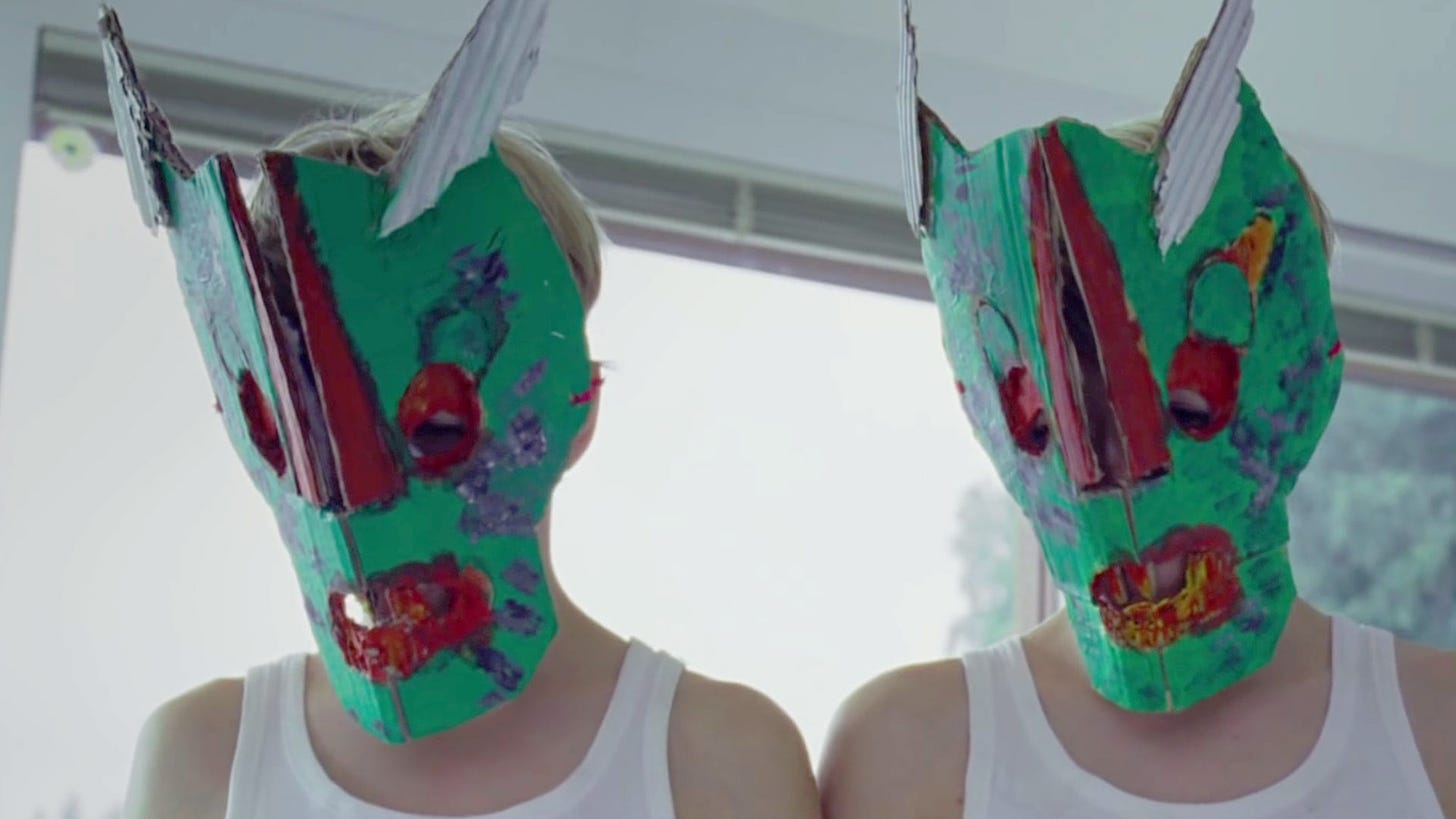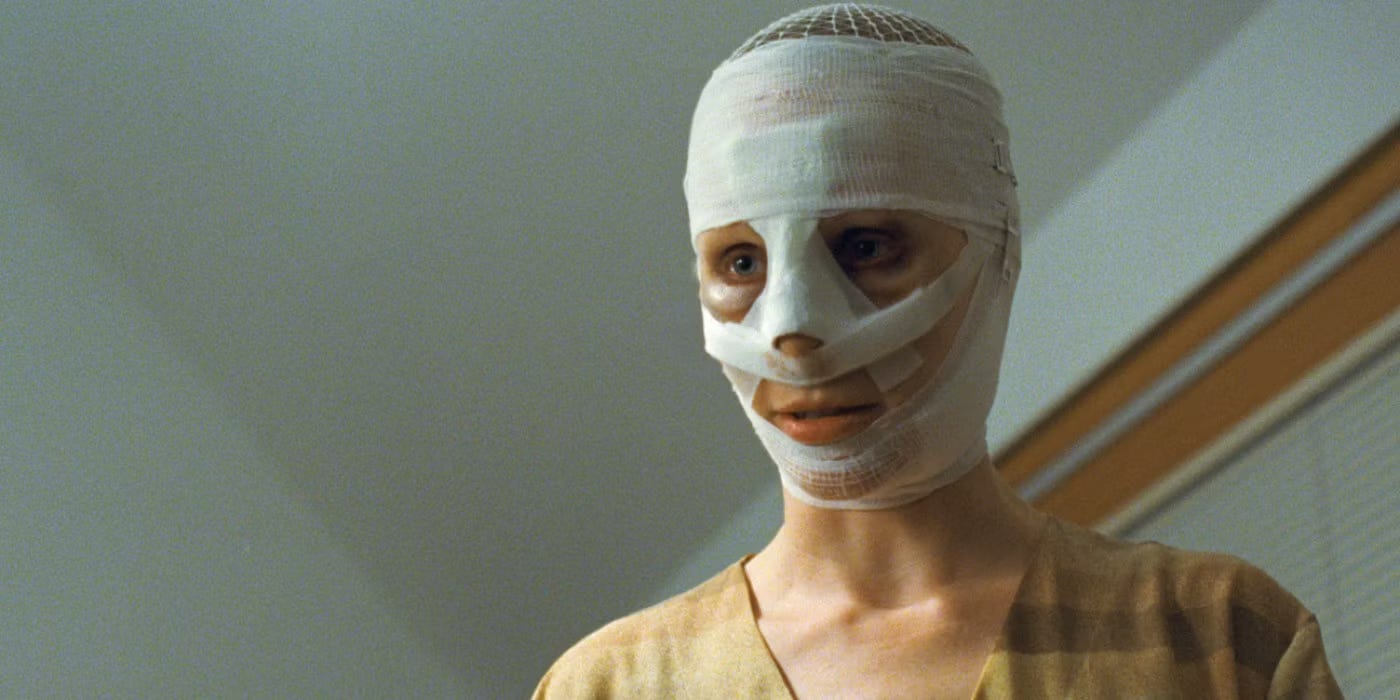It’s October So I Watched a Horror Movie I’d Never Seen Before: ‘Goodnight Mommy’
One sort of horror gives way to another in this claustrophobic family story from Austria.
I’ve seen a lot of horror movies, but not as many as I’d like. so I’m going to spend the rest of this month filling in some gaps. A heads up for this final 2024 entry: It’s impossible to talk about Goodnight Mommy in any meaningful way without spoilers.
Google the 2014 film Goodnight Mommy and you’ll find four questions under the “People also ask” heading. First among them: “What was the point of Goodnight Mommy?” About two-thirds of the way through the film, I found myself asking the same question. By the end it had become irrelevant. Directed by the Austrian aunt-and-nephew team of Veronika Franz and Severin Fiala, Goodnight Mommy begins as a movie with a central mystery that’s discarded so quietly midway through the film it’s easy to find yourself puzzling over questions that end up not mattering.* That the film shifts from slow-mounting dread to grotesque violence—inflicted by children upon an adult—further obscures what’s happening. It’s hard to pick up on shifts in focus when subjected to images of a bound woman being tortured by her seemingly remorseless sons.
I know some viewers pride themselves on being able to outsmart movies. I’m not one of them. That’s partly because I’m not that bright, or at least not bright enough to stay one step ahead of even obvious twists. Five years later, my wife still razzes my daughter and I about not anticipating the final revelation in Detective Pikachu. (To be fair, my daughter was eight at the time. I was significantly older.) But I’m also not the sort of viewer that instinctively looks for twists, which makes me the ideal audience for a movie like Goodnight Mommy, which sets up one mystery but is actually driven by another.
That first mystery is manifold. Goodnight Mommy opens with images of two twins, Elias and Lukas (characters who share names with the actors portraying them, Elias and Lukas Schwarz), playing unsupervised in the countryside surrounding their angular, luxurious lakeside home. They rush home when a car’s arrival signals the return of their never-named mother (Susanne Quest), a TV presenter who’s returned from the hospital with her face wrapped in bandages and, the boys note, a personality so altered they wonder if she’s really their mother at all.
The mother keeps both boys at a distance and neither escapes her irritability, but Lukas gets the worst of it. She won’t speak to him. She only prepares food for Elias, who tells his brother he should apologize for some never-named past offense. But mostly, after asking them to close the shades and play outside, she leaves her sons alone. That’s another change that leads them to suspect she’s been replaced, a suspicion compounded by the discovery of a photo in which the mother beams at the camera alongside an identically dressed woman who could be her twin.
Franz and Fiala pile on the creepiness to an almost absurd degree. While exploring the grounds, the boys find a chamber filled with bones. They keep cockroaches as pets. When the boys surreptitiously take in a cat against their mother’s wishes, it’s not a matter of whether the poor kitty will meet a bad end but what kind. Their home is lined with art of figures with obscured features. In retrospect, one scene not clearly marked as the boys’ fevered imaginings—in which the mother walks into a nearby forest, strips nude, and removes her bandages to reveal a blurry, distorted image where her face would be—feels like it’s not playing fair. But they direct in such a careful, commanding, unnerving style that this never becomes an issue. We’re locked into the boys’ nightmarish existence, trapped in a home with a woman who might not be their mother—if she’s a woman at all.
When the mother appears without bandages, and with a face that looks fully healed, it’s more unsettling than reassuring, as is the boys’ subsequent escape attempt to a virtually deserted nearby town whose authorities swiftly return them to their home. Seemingly given no other recourse, the boys decide to bind and torture their mother to get to the bottom of things. It’s here that the movie started to remind me of Takashi Miike’s Audition, and where what was happening on screen threatened to lose me. It’s not that I object to graphic content, but if a film is going to make me watch this kind of torture, it needs a reason to exist beyond pushing the limits of what the audience can take. (Audition, for instance, does. The Texas Chainsaw Massacre: The Beginning does not.) Goodnight Mommy’s reasons only become clear in the film’s final moments, but they justify a lot. With the revelation that Lukas died in the same car accident that disfigured his mother and now exists only in Elias’s imagination, what seemed like a movie about doppelgangers and creepy kids is transformed into a film about loss, grief, and a dangerous refusal to accept death.
And, like The Sixth Sense (I didn’t see that twist coming either, for the record), Goodnight Mommy reframes everything we’ve seen, even beyond moments when it becomes clear why the mother refuses to address one of her sons. In one of the film’s most memorable shots, Franz and Fiala frame the boys as they lie on a floor in poses that mirror the corpse of the cat between them. It’s both macabre and touching, though only in retrospect does it become clear there are two dead creatures in the shot, not just one.
I found Goodnight Mommy deeply, even excessively uncomfortable until being moved by its final moments. I don’t think I’ve ever had an experience quite like that with a horror movie before, where what seemed gratuitous and sadistic in the moment became sad upon reflection. I’m not sure every decision Goodnight Mommy makes serves its gutting final revelation—beyond the fantasy sequence described above the trip to town makes the world around the boys’ home seem as freakish and threatening as the world within its walls—and the directors’ decision to play every moment for maximum creepiness works most but not all of the time. (I had already seen the team’s follow-up, The Lodge, which doesn’t balance this last impulse quite as well.**) But in the end the film works—it has a “point,” to circle back to that Google query—for the same reason the best horror movies do: it unsettles and disturbs in order to get at what really scares us.***
* Among the other “people also ask” questions: “What happened to the real mother in Goodnight Mommy?”
** I’m looking forward to The Devil’s Bath, the team’s third film, which seemed to go over well at the festivals it played. They’re also apparently adapting Paul Tremblay’s great novel A Head Full of Ghosts, and seem like an excellent fit for that job.
*** I have not seen the not-well-received 2022 American remake and will probably skip it, as much as I like Naomi Watts.






I genuinely still cannot believe you didn't realize who Detective Pikachu really was.
This is one of those movies where the premise is so reflexively uncomfortable for me that I just looked up the plot summary on Wikipedia. No regrets!